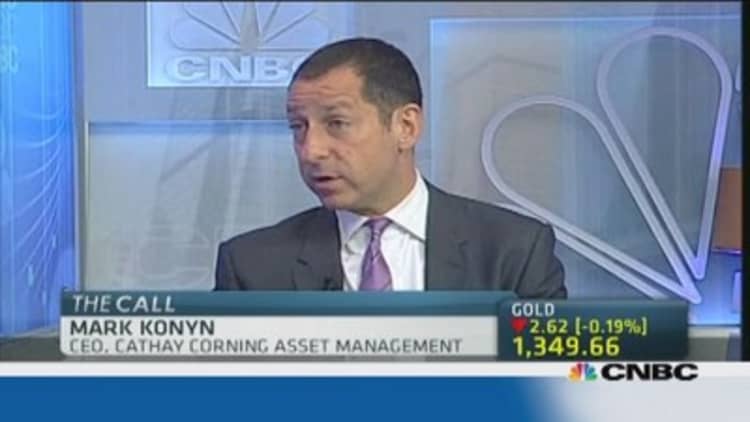This week's deadly car explosion in Beijing that police say was a suspected terrorist attack on China's capital city has a number of significant repercussions, analysts say.
The main reasons for concern: the attack could set a dangerous precedent; it highlights the symbolic value of targeting Beijing and could undermine confidence in the world's second biggest economy if there are further such incidents.
(Read more: China police seek eight in connection with Tiananmen car crash)
On Monday, a SUV crashed into pedestrians in Tiananmen Square, a site of huge political and historic significance in China, killing the three car occupants, two tourists and injuring about 38 people.
Authorities suspect the crash may have been a suicide attack by people from Xinjiang in far west China and detained five suspects on Wednesday in connection to the incident, according to media reports.
"The attack is significant for a number of reasons despite the small number of fatalities," analysts at the Asia-Pacific Foundation, International Policy Assessment Group, said in a note published Thursday.
"Firstly, the attack illustrated the symbolic value of targeting the Chinese leadership in the heart of the capital of China. Secondly, it is also a very popular place for tourists to frequent and the attack would have been designed to undermine confidence that Beijing is a safe place to visit," they said.

"Thirdly, if there is a follow up attack, it will have an economic impact especially if the attack takes place in another major city like Shanghai," they added.
(Read more: China logs best growth so far this year)
China's economy is in a period of transition. As policymakers try to shift China to a more stable footing after years of fast economic growth fueled by investment and exports, they have to tread a careful path of maintaining social and political stability, analysts say.
Monday's incident came less than two weeks before the plenary session of the Chinese Communist party which provides an opportunity to launch new policies.
"China's economy is changing so you have to pay close attention to ethnic-related issues, land grabs and the environment," said Dariusz Kowalczyk, a senior economist and strategist at Credit Agricole in Hong Kong.
"At this point, there's no evidence to suggest that [Monday's suspected attack] will go beyond an isolated incident, but if there were any more attacks that could hurt confidence," he added.
(Read more: Smog, so what? For expats, China has most to offer)
Crackdown?
Xinjiang is home to China's Uighur Muslim minority and Uighur activists in the past have criticized the government for repressing their culture.
Analysts said one consequence of Monday's incident was a tightening of policy towards China's ethnic groups.
"We don't exactly know what the consequences of the attack will be," said Joseph Cheng, professor of political science at the City University of Hong Kong.
"But there are some things I would watch – one, is if those in charge of security get more resources and second, if the attack signals that there will be more emphasis on suppression and less emphasis on winning the hearts of the local people in Xinjiang," he added.
— By CNBC.com's Dhara Ranasinghe; Follow her on Twitter @DharaCNBC


